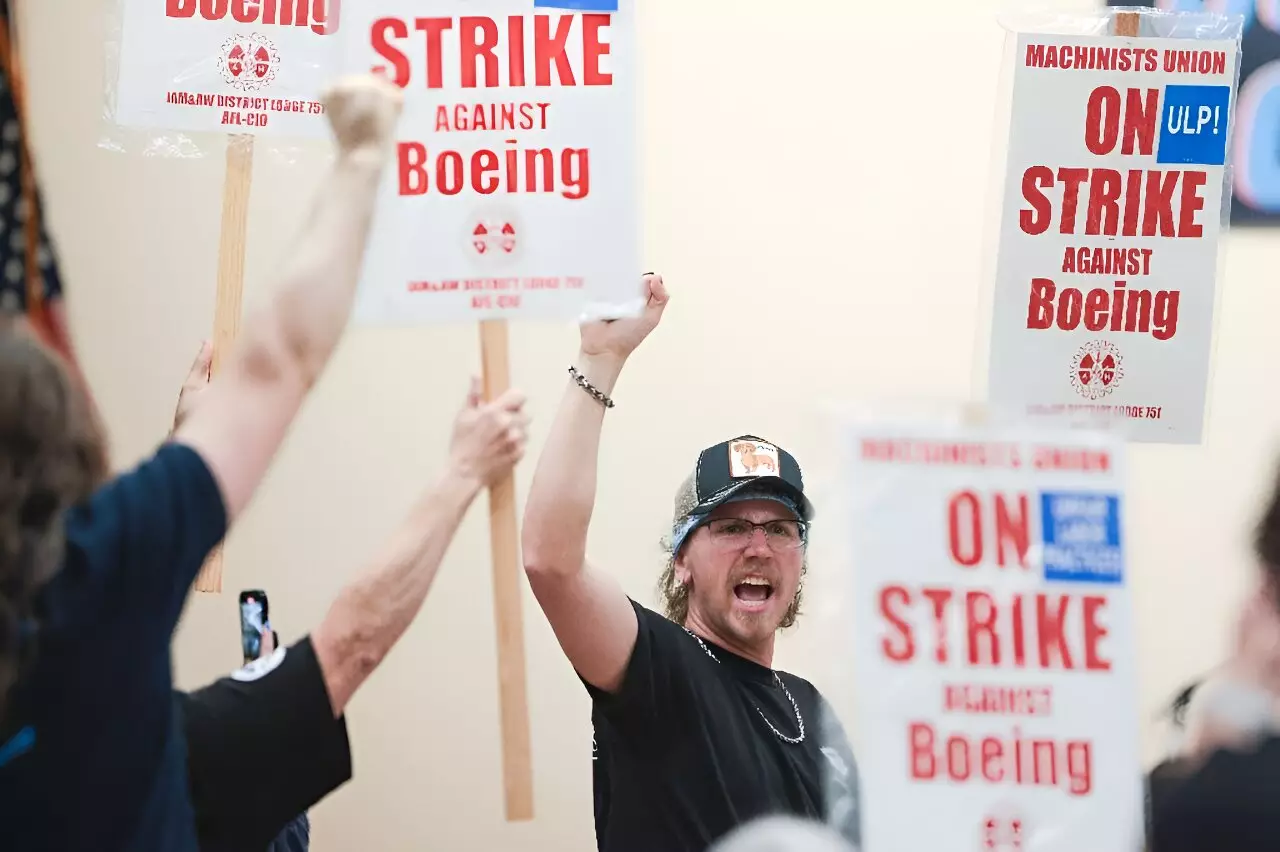The ongoing strike at Boeing marks a significant moment for labor relations in the U.S., as employees protest over unsatisfactory wage increases and labor conditions. After 16 years without a walkout, workers represented by IAM-District 751 have strongly voiced their dissent by rejecting a proposed contract and subsequently voting to strike. In a climate where labor rights are increasingly under scrutiny, this strike illuminates the need for reevaluation of compensation structures within major corporations that have historically underwhelmed their workforce.
The federal mediation service will facilitate negotiations between Boeing and the striking workers starting Tuesday. With over 33,000 machinists in Seattle engaged in the action, the stakes are notably high. Union representatives have expressed an unyielding resolve, urging members on the picket line to amplify their voices against Boeing’s proposals. The overwhelming rejection of the proposed contract—94.6% against and 96% voting to strike—demonstrates the depth of discontent among employees, contrasting sharply with Boeing’s optimistic outlook regarding proposed wage hikes and investment pledges.
Boeing’s inability to address worker dissatisfaction has brought to light deeper issues within the company’s management strategies. While the company anticipates that a 25% wage increase over four years might appease its workforce, many workers feel this offer falls short given their stagnant wage growth over the past decade.
The strike has immediate implications for Boeing’s production capacity, particularly halting significant assembly lines for the 737 MAX and 777 aircraft. This disruption comes at a particularly challenging time for Boeing, which is already experiencing financial strain and pressures to stabilize its operations. Conversely, the strike underscores the pivotal role that workers play in maintaining production schedules and affirms the leverage they can wield through collective action.
Moreover, this labor dispute might serve as a flashpoint for similar movements across various sectors. As workers across the nation grow increasingly disillusioned with corporate wages and employee treatment, the success or failure of the Boeing strike could set important precedents for labor negotiations going forward.
Union Solidarity and Worker Empowerment
IAM-District 751’s call to action embodies a spirit of solidarity and empowerment among workers, urging them to project their demands beyond the local level. The union’s message is clear: the strength of their collective voice is paramount. Their insistence on unwavering solidarity highlights a broader narrative in labor movements today: workers are not merely seeking concessions; they are demanding a fundamental shift in how industries value and compensate their contributions.
As the Boeing strike unfolds, it serves as a pivotal backdrop against which the future of labor relations in the U.S. is being written. The outcome of this dispute could reverberate through industries nationwide as labor trends toward more assertive demands for fair pay and working conditions. It remains to be seen how both sides will adapt in the coming days, but one thing is certain: the voices of workers are becoming increasingly difficult to ignore.

